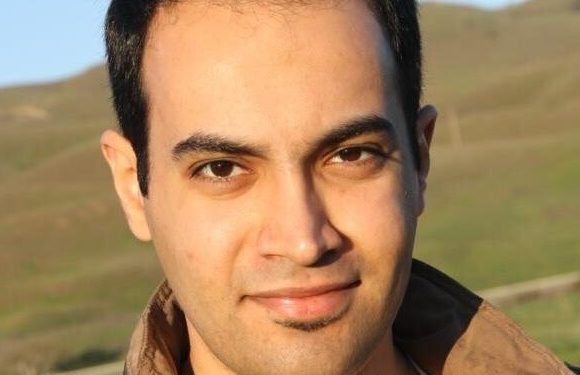
A campaign launched to demand the release of the life of Saudi human rights activist Abdulrahman al-Sadhan has gone viral on social media sites.
Saudi Arabia has a black human rights record of arbitrary detention and torture. The case of al-Sadhan is one of the most recent examples.
A Saudi intelligence force kidnapped al-Sadhan 16 months ago, and his fate is still unknown today.
Al-Sadhan was kidnapped from his office at the Saudi Red Crescent in Riyadh where he worked. They seized his cell phone before transferring him to an unknown location. The authorities did not show an arrest warrant or explain the reasons for the arrest.
His neighbors reported the next day that they saw a group of men in police uniforms entering his house by force. Then they left the house loaded with his electronic equipment and personal belongings.
One prisoner at Dahban prison stated that he saw al-Sadhan inside the detention center in October 2018.
Despite the lack of knowledge of the reasons for the disappearance of Abdul Rahman Al Sadhan, he disappeared during the campaign of Saudi Crown Prince Mohammed bin Salman al-Shuaa on all factions of Saudi society.
Al-Sadhan may have been active in the field of human rights, but he was not as well known as those close to him.
After then a year of his disappearance, the al-Sadhan family talked about the circumstances of his disappearance and his arrest in the Kingdom’s prisons.
In the first interview to shed light on the case, his sister Areej said the family assumed that he was one of the dozens detained by the Saudi authorities. Days after his disappearance, his family received an anonymous call that officials believed that secret police arrested al-Sadhan from the Red Crescent offices in Riyadh where he worked.
She pointed out that the last words he said to his family were “I love you, my mother,”.
Al-Sadhan’s family recently received assurances from the authorities that he was detained a month after his arrest. His sister said that the most recent information they received was last November. The National Human Rights Society told them that her brother had been transferred to another prison. They had heard from relatives of other detainees that he had been tortured.
At least 150 people, including bloggers, academics, religious scholars, businessmen, and activists, have been arrested over the past three years, Kasta said. Al-Asiri describes al-Sadhan as a “prisoner of conscience,” and that he is one of five cases that the “Qaseem” association has documented over the past three years on people who “disappeared” after their arrest, including journalists, preachers, and a Syrian pilgrim.
The authorities of the House of Saud exercise widespread arbitrary disappearances against dissidents, human rights activists, and humanitarian workers as well as journalists and bloggers.
Arbitrary disappearance is the coercion of a person to disappear without a trace, to be detained and not to be allowed to communicate with the outside world.
Activists demanded that the Saudi authorities immediately disclose his fate and allow him to communicate with his family.
Forced abduction is a major and unforgivable human crime. Without legal reasons, judicial orders or arrest warrants, hundreds have been abducted and kept in arbitrary detention in inhumane conditions.
Enforced disappearances in Saudi Arabia increased as authorities sought to hide detainees forcibly and deny their families any information about them.
According to the sources, the arrests targeted human rights defenders who demand and defend the rights of women.
Amnesty International has recently expressed that the situation: “The presence of human rights activists today in Saudi Arabia is threatened with completion, as they disappear one by one.”
In the same context, two British lawyers demanded that Saudi Arabia be suspended from the United Nations Human Rights Council for human rights violations.
Saudi Arabia does not recognize several major international instruments, including the International Covenant on Civil and Political Rights, the International Covenant on Economic, Social and Cultural Rights, and the International Convention on the Protection of All Persons from Enforced Disappearance.
International and human rights organizations have repeatedly condemned human rights violations in Saudi Arabia and called for the immediate release of prisoners of conscience in the Kingdom and the improvement of conditions of detention in accordance with international standards, laws and treaties and the detection of places of detention of persons hidden by Saudi authorities.